How to Become Fluent in English Easily
👇 Take this lesson with you! 👇
Table of Contents
Becoming fluent in English is simple, really!
But it often seems complicated as lots of people offer ‘new secret methods’, ‘a new way to learn’, ‘a new revolutionary technique’. To be honest, even I have the ‘Speaking Success System’ in my online English courses!
However, the truth is the principle behind all these methods is very similar and as old as the hills.
I am going to try and explain it to you in a simple way, so you can see how simple the route is to gain fluency in English.
The English Fluency Formula
Here is a super simple formula based on sound pedagogy, and if you follow it, you will eventually reach fluency.
[Study + Practice] x Time = Fluency
You don’t need a ‘revolutionary’ method, ignore the tips and tricks to become fluent in a month, just follow this simple formula.
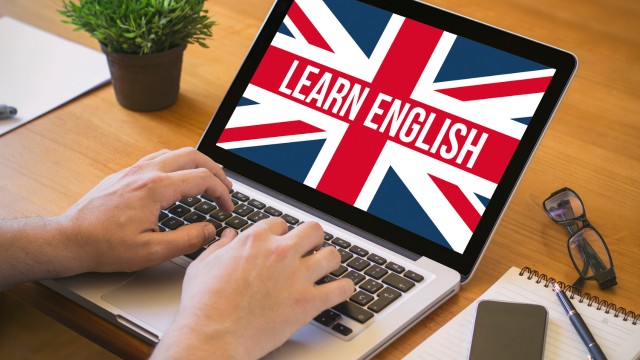
How to Study English
[Study + Practice] x Time = Fluency
The first most important thing to do when you study English, is to study language in context. Avoid word lists. Yes, use grammar books, but use them as references; don’t study a whole book grammar book from start to end.
Next there are a series of 4 steps you should follow
1. Know your level
2. Choose texts at your level (or slightly above)
When it comes to finding texts, which can be written, audio or video, you have three choices
- Find your own resources
- Choose a course book
- Choose an online course
If you want to look online for your own materials, that’s fine, and here is a tip to help you search.
- Write the level you want (e.g. B1)
- Write the topic (e.g. shopping)
- Write the type of text (e.g. stories, conversations, news)
If you are using a search engine like Youtube, you might get something like this”
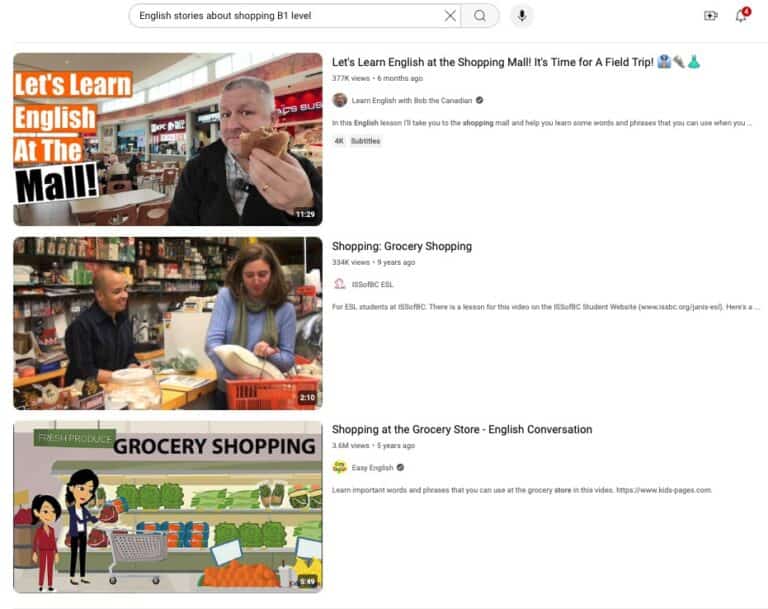
3. Read, listen or watch the whole text for enjoyment
Start by reading, listening or watching the whole text from start to end. Don’t start looking up words. Just try to get the overall meaning first.
If it is too hard, or boring, change the text.
4. Analyse the text
Finally, look at the text and start to analyse it to see what you can understand, and to learn new language. Now, here is the key, when you analyse a text, analyse the vocabulary, grammar and pronunciation at the same time.
Avoid spending 20 minutes studying vocabulary, and then 20 minutes studying grammar and finally 20 minutes studying pronunciation. That is not a very good way to study.
It’s better to spend 60 minutes studying vocabulary, grammar and pronunciation all together in the text. Remember, study language in context. That way, you will not only understand it, you will know how to use it.
How to Practice English
[Study + Practice] x Time = Fluency
There are 2 ways to practice, either on your own or with other people. Both are fine, and in fact you probably should do both.
How to practice speaking English alone
When you practice alone, one of my recommendations is to follow the Speaking Success System. In short, this involves taking an audio or video and listening to phrases and after each phrase pausing and doing one of the following,
- Repeat
- Change a word
- Change tense
- Make up phrases
- Shadow
In addition, I recommend you try and mix the following three types of practice
- Controlled (mainly repeating)
- Semi-controlled (repeating but changing a part of the phrase)
- Free (speaking more freely)
Learn more about these three types of speaking practice here.
How to practice English with a speaking partner
You can find a speaking partner from a course you are following, and there are also lots of online communities and groups where you can look for a speaking partner at a similar level to you.
When you practice with a speaking partner, there are different ways you can practice, including,
- Focussing on communication and fluency
- Focussing on using new words or grammar
- Focussing on accuracy

Organise Your Time
[Study + Practice] x Time = Fluency
‘We are our habits’
When your learning English with a goal to reach fluency, then I think it is essential to create a study habit.
Here are my top tips for doing this.
Tip #1. Study and practice on a regular basis
It’s better to study 10 minutes a day over a week, instead of studying for 1 hour once a week.
Tip #2. Same day(s), same time, same place
If you are going to study twice a week, let’s say Monday and Fridays, then try and stick to those same days each week. Likewise, aim to choose a time and fix it. Even studying in the same place, helps create the study habit.
The fewer choices you have to make (about time and place), the more successful you are likely to be.
Tip #3. Plan content, before you study
If you arrive at your study session but don’t know what you are going to do yet, you will waste lots of time looking for ideas and content, and most likely get distracted on the Internet and social media.
Spend 2 or 3 minutes the night before your study session and decide exactly what you want to study, so when you start studying the next day, you don’t waste any time looking for stuff to study!
Tip #4. Prioritise and be persistent
If you want to be successful at studying English and becoming fluent, you have to prioritise your English study. If not, ‘more important’ things will always happen and you will slowly give up your study.
If you are serious about fluency make a commitment to study at least one year – and prioritise that.
Of course, if’s fine if you take a few weeks off now and again during the year, but always aim to stay on track.
Tip #5. If you miss a day, don’t worry, just carry on next time.
If you miss a day, or even a week, just relax. As soon as possible, take one step, towards starting your study again.
That step may be a simple plan, a 5 minute study session or just listening to the radio in English again. Whatever that step is, you must take it as soon as possible. The longer you are ‘away’ from study, the harder it is to get back in.

Conclusion
Don’t overcomplicate your English study! Don’t be like a magpie, always chasing the newest method, book, course or fashion!
The truth is planning for fluency is simple, just follow the Fluency Formula.
[Study + Practice] x Time = Fluency
Make a plan and keep going!
It does also help if you enjoy your study, because then you are more likely to continue. Good luck on your journey to English fluency!
Improve your Speaking Skills with this Free Course
Crack IELTS Speaking Part 1
Learn to Speak with Confidence in Part 1 of Your IELTS Test!
⭐️⭐️⭐️⭐️⭐️
‘It’s such a great course. I’ve learned so many usages for speaking part 1.’
Zu Htet

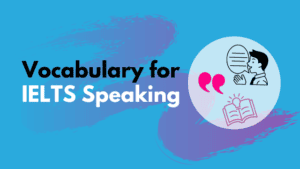
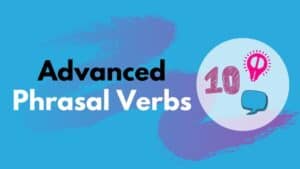


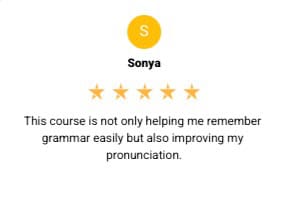
1 thought on “How to Become Fluent in English Easily”
I’ve saw in one of your ‘lives’, a site of songs and lyrics in enghlish. If You don’t mind, can You send the site address to me?